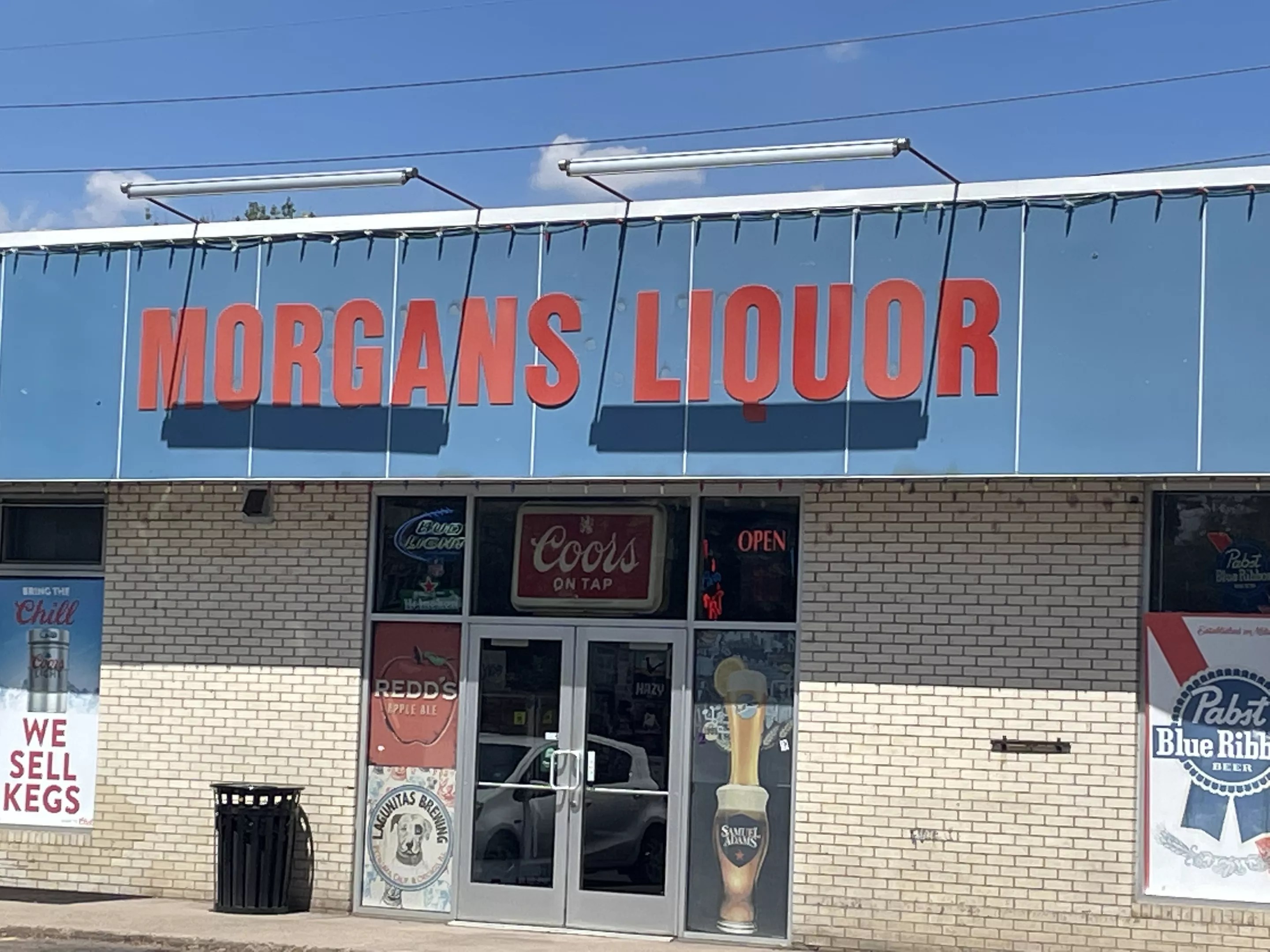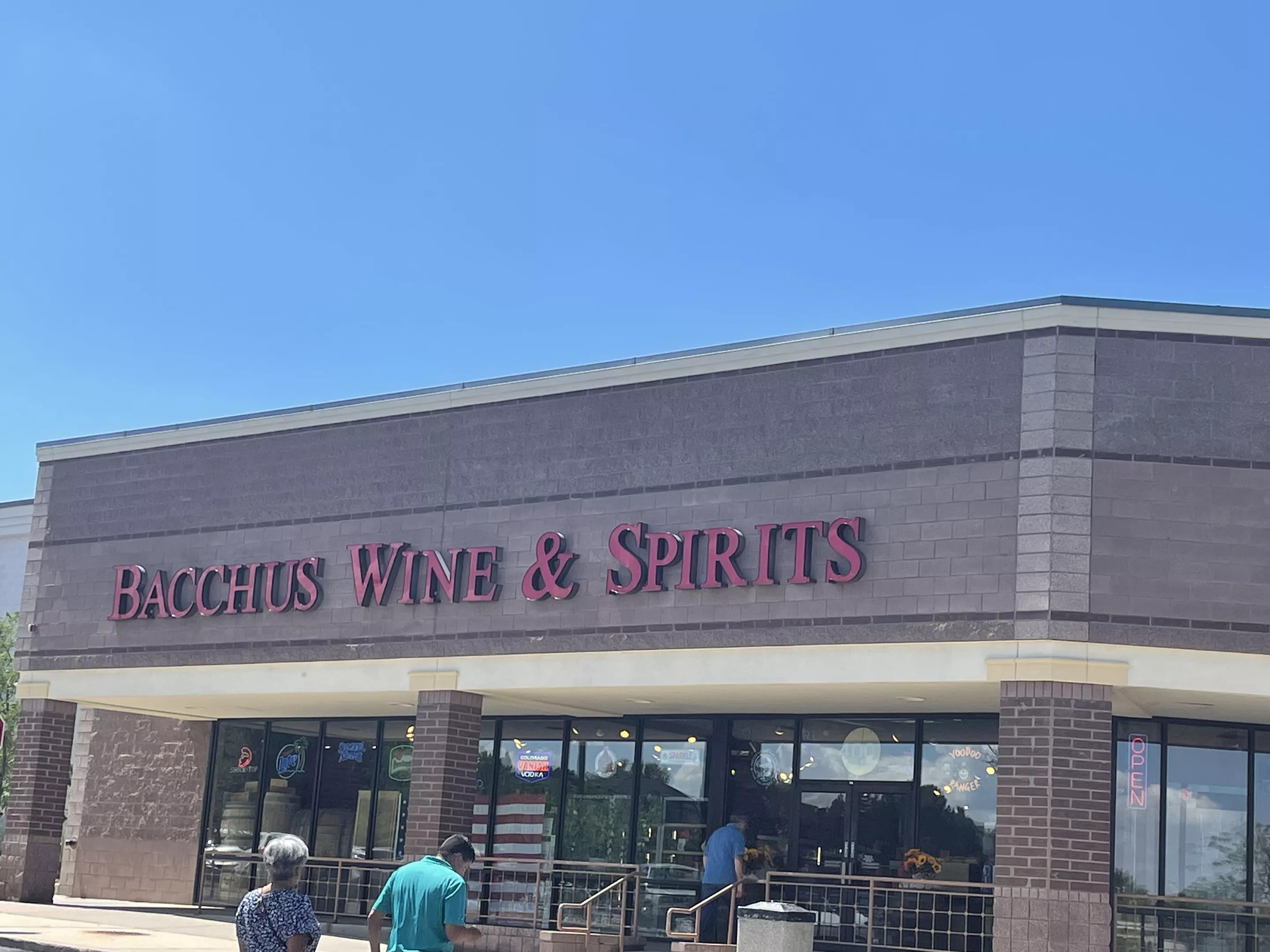
Katrina Leibee

Audio By Carbonatix
Jim Archibald and his wife have owned Morgan’s Liquor for twenty years. The store sits at 1200 East Evans Avenue, anchored right next to a Safeway, which to Morgan’s looks more like a corporate monster coming to eat up its sales.
January 1, 2019, was a dark day for independent liquor stores like Morgan’s; that’s when grocery stores were allowed to sell full-strength beer for the first time in Colorado. “Our beer sales have dropped 30 percent since [grocery stores] got beer,” Archibald says. As a result, he had to let go of four employees and cut his advertising budget. Now he fears another drop in sales could be coming, which could result in having to let even more employees go.
Signatures for Initiative 121, which would allow grocery and convenience stores to sell wine, and Initiative 122, which would allow third-party companies such as Uber Eats and DoorDash to deliver alcohol from restaurants, convenience, liquor and grocery stores, were submitted by the August 8 deadline. Both will likely be on the ballot this November.
Proponents of the initiative say that the large selection available at liquor stores will keep them in business, even if 121 is passed. “Colorado had 1,600 licensed liquor stores before beer in grocery stores, and three years later, we have 1,592 because consumers get more choices from liquor stores – more choices in beer and in wine,” says Michelle Lyng, spokesperson for initiatives 121 and 122. “Grocery stores and liquor stores will continue to operate successfully as they do now.”
Lyng says voters were enthusiastic to sign the petition to get the initiatives on the ballot. “Because of the convenience of people being able to pick up a bottle of wine while shopping for groceries, and the convenience of being able to order a bottle of wine to accompany the food being delivered from a restaurant, this was an easy sell, and we found Coloradans were excited to sign,” she notes.
Archibald, however, anticipates that this measure could take hundreds of thousands of dollars in sales from his store, even with its large selection. His biggest concern is that grocery stores will start selling the most popular products, and that customers will buy them at the grocery stores for convenience or for cheaper prices than at liquor stores.
“Everyone knows 20 percent of the products do 80 percent of the business,” Archibald says. “Every single beer is on sale at a price that is impossible for us to sustain. I could sell it at the price they’re selling it at, but I could maybe offer it as a weekend special. They’re trying to choke us out.”
At Morgan’s Liquor, an 18-pack of Coors Light costs $18.99. At the neighboring Safeway, it’s going for $17.99 regularly and $16.99 with a Safeway card. A Coors Light 24-pack was $20.99 at Morgan’s, while at Safeway, it was priced at $21.99 regularly and $19.99 with a card. Many selections were priced the same at both stores, as well.
Wholesale membership stores like Sam’s Club are where the prices differ more significantly. Sam’s sells a 24-pack of Coors Light for $18.46, beating out both Morgan’s and Safeway. A 20-pack of Bud Light at Morgan’s is going for $19.99, while at Sam’s Club, a 24-pack is $17.96.
Keegan Jenks, owner of the family-owned Bacchus Wine & Spirits, at 9265 South Broadway, also competes with a Safeway and echoes Archibald’s sentiments. He says a large portion of the store’s sales come from its top 25-30 best sellers in beer and wine. Even if liquor stores have the edge of selection, that isn’t what keeps them afloat.

Bacchus Wine and Spirits in Highlands Ranch.
Katrina Leibee
Jenks says the store’s beer sales were cut in half after the beer measure passed in 2019, and now with Initiative 121, he’s unsure what the future looks like for his business. “If we don’t protect independent small businesses, we’re walking a thin line into people not needing small businesses anymore,” he notes, adding that grocery store clerks aren’t knowledgeable on specific wines and can’t provide the same service you might get in a liquor store.
So how much wine can you expect to see in grocery stores should the initiative pass? Even though selection will likely always be bigger at liquor stores, there’s nothing stopping grocery stores from pushing aside the soda and putting up massive aisles of wine if they wanted to.
If the measure passes, grocery and convenience stores would have to go through a process of applying to modify their premises. For example, if a grocery store currently has one aisle of refrigerators that keeps its beer, the most it can do is put its wine in those fridges. If the store wants to put up an aisle of wine, it’ll have to apply to modify its premises through its local jurisdiction. For Denver, this means the excise and licensing department.
After a store applies, it would go to a hearing where the public can give input. According to Denver’s Excise and Licenses Hearing Policies and Procedures, local jurisdictions have to consider “the reasonable requirements of the neighborhood and the desires of the adult inhabitants,” when deciding on modification to a store. Further, because liquor falls under state and local licensing, the state must approve the modification, too.
“The expectation is that a significant number will apply to expand,” says Tom Downey, a regulatory attorney who advises on liquor and marijuana licensing.
Lyng says there is no specific formula involved. Each store and community may approach the process of applying to expand where they can sell liquor differently. “The store must go through a community input process and follow state and local government review,” she notes.
Could grocery stores in Colorado also sell spirits like rum, tequila and vodka one day? “If, in some future date, there’s a ballot initiative, that would be subject to the will of the people,” Downey says.
That’s a date Archibald fears. “In 2024, I’ll bet you they’re going to try to get spirits approved,” he says. For now, he’s doing what he can to keep Morgan’s competitive by focusing on selection, excellent customer service and the possibility of delivery in the future.
Jenks says that if initiative 122 is passed, his store will do what it can to drive sales from that as well, but he doesn’t anticipate it making enough of a difference to offset the loss he’ll see. “In the grand scheme of things, when they take 20 percent of your business, it’s tough to make ends meet,” he concludes.